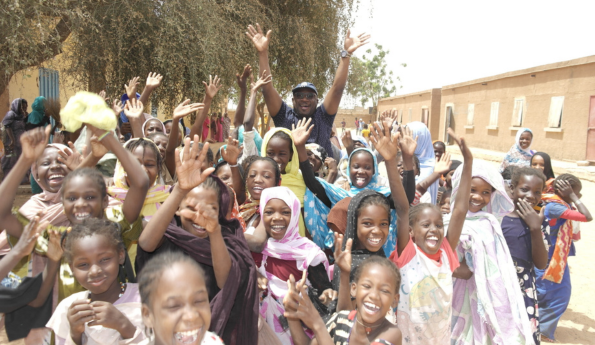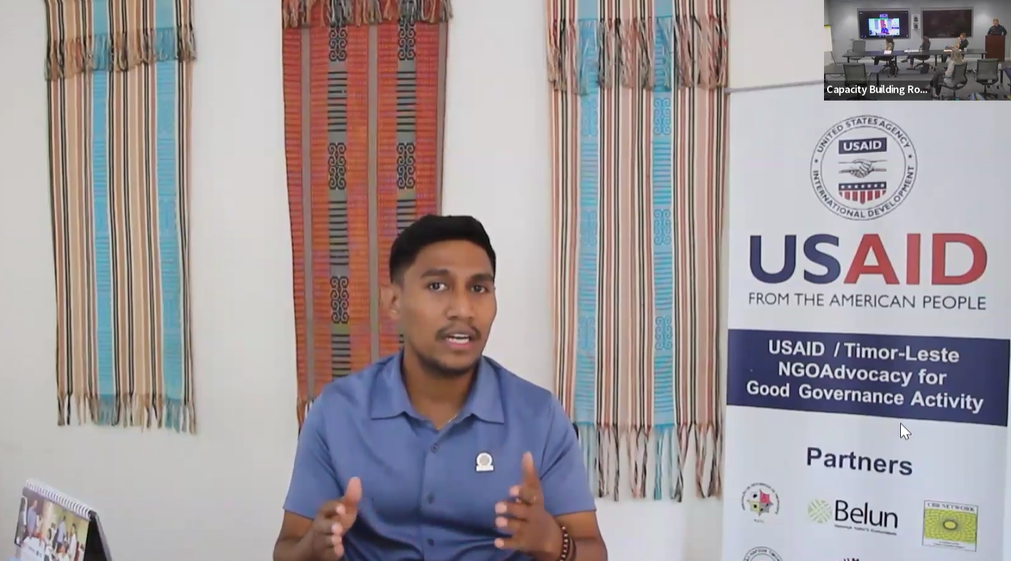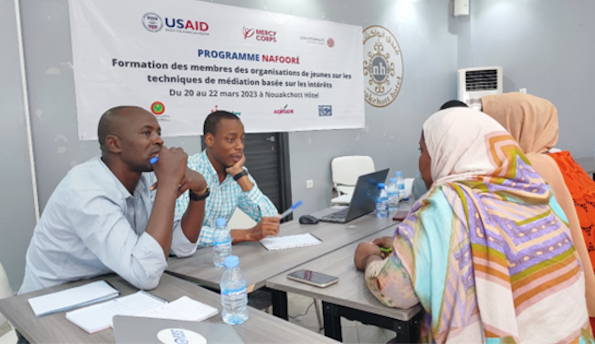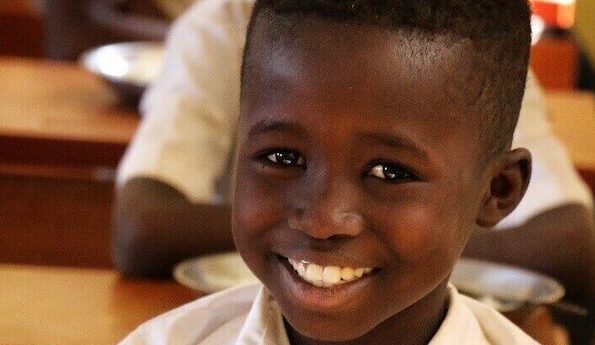In the vibrant Mauritanian suburb of Sebkha, where young people have been discouraged by socio-economic challenges, the USAID-funded Nafoore program is transforming lives by giving youth a renewed sense of purpose and possibility.
Meaning “added value” in the Fulani or Pulaar language, Nafoore works across four regions in Mauritania to foster community engagement, build fundamental skills, and promote social cohesion, enabling vulnerable youth to overcome barriers, forge connections, and envision a promising future. This is a critical goal as 70 percent of the country’s population are under 35 years old.
Youth as Positive Agents for Change
In the heart of Sebkha, the Maison de Jeunes (“Youth Center”) serves as a youth-friendly space that has gathered 196 young people to pursue shared personal, professional, and community development goals.
Sebkha’s youth have become positive agents of change in their community through Sports for Change activities, such as a weeklong soccer tournament organized by young people to promote social cohesion and conflict resolution, and the implementation of five community projects developed on important issues facing the community, including juvenile delinquency and poor waste management.

Sebkha members celebrate the final match of the Sports for Change soccer tournament.
Nafoore’s success lies in its holistic, peer-learning approach to positive youth development. From the moment youth join the program, they are supported by a dedicated group of young leaders of youth-serving organizations who serve as case managers and training facilitators. Thes youth leaders guide participants through a journey of self-discovery where they can create opportunities to put their skills into action.
For example, after enhancing their understanding of civic engagement and local governance, the participants collaborated with the mayor to get trucks for a community cleaning project. Not stopping there, the youth are now preparing to engage in formal dialogue with local authorities to ensure that their voices shape local development plans, which set priorities and allocate resources for community projects and initiatives.
Strengthening Familial and Social Bonds
Deeply embedded and respected in the community, case managers build strong relationships with parents by regularly reaching out and following up on youth engagement. They advocate for the participants, share success stories, and encourage new people to join. This fosters trust and allows families to play a key role in their children’s development, reinforcing positive behaviors at home.
One training module has become a family favorite—budgeting and financial management. Many program participants, including two young women entrepreneurs, have used the skills obtained in the module to better manage their own small businesses and have shared their knowledge with family members, positioning themselves and their families for future success.

The first group to complete the program celebrated with a graduation ceremony in July 2024.
To celebrate the achievements of the first group of participants, Nafoore hosted a graduation ceremony that convened over 300 people, including case managers and facilitators, families and friends of the participants, and representatives from USAID and the U.S. Embassy in Mauritania. This celebration was more than just an event, it was a bridge between generations, a moment for the youth to proudly share their triumphs with their families.
A Future in Sebkha
While many young people in Sebkha have historically felt that emigration was their only option, Nafoore is changing that belief. Today, participants feel they can remain in their community, using their skills to build a better future. Importantly, youth are increasingly motivated to seek out employment opportunities, equipped with the skills gained through training in leadership, networking, and financial and program management. By training youth on fundamental personal and professional skills, Nafoore is proving that with positive youth development, youth can thrive where they are. “There are youth that stay and believe in Sebkha. Nafoore gave us the motivation we needed, removed barriers, and gave us the tools to achieve our dreams,” according to Ibrahima Samba Solo, a program participant.
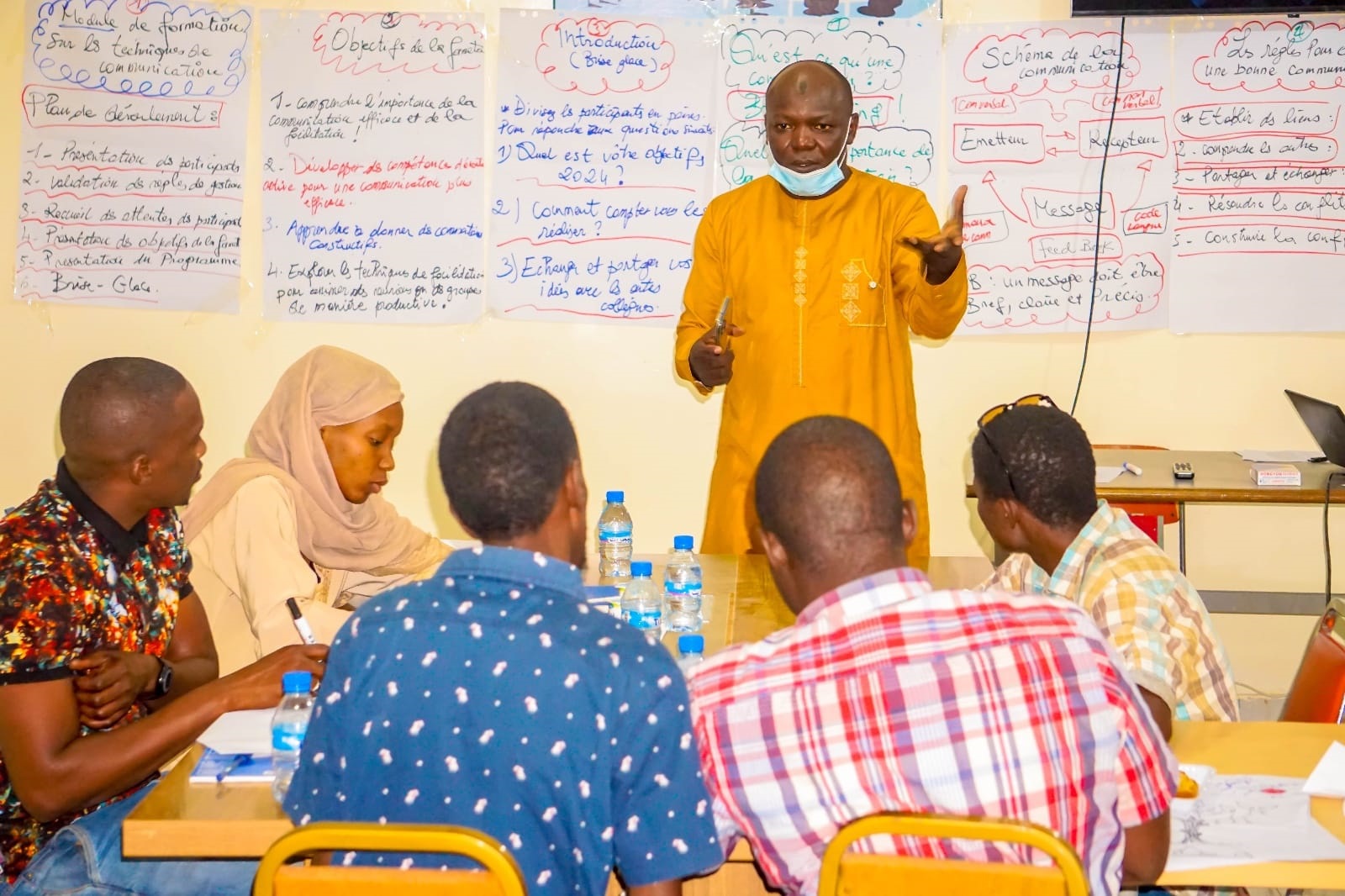
Youth leaders participate in a training of trainers on fundamental life skills.
Counterpart’s Nafoore program has strengthened family ties, fostered social cohesion, and inspired a generation of young people ready to lead their community toward a brighter future. Through Nafoore, Sebkha’s youth are staying put and transforming their community into a place of opportunity.



